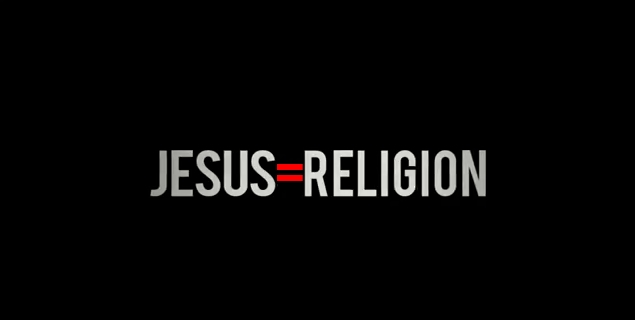Seriously, who doesn’t love free stuff?
Recently, my friends and I had the privilege of visiting Capitol Hill Baptist Church (CHBC) in Washington, D.C. We had a great evening visiting and gleaning wisdom from the elders of their church. CHBC is also the headquarters for an organization known as 9Marks, an organization that publishes resources to help equip and build healthy churches. Most of their books are on my Amazon wish list, but since buying them all would cost a pretty penny, I was waiting until later to buy them.
While we were visiting with the elders, they were telling us about some of the work they do in 9Marks. As we were talking with them, they invited us up to the 9Marks office to see where all of their work was done. When we got to the office they shocked us all with a gracious gift – they offered us any number of their books that we wanted to take – for free!
Free!
It was such an unexpected and gracious gift, I could barely contain my excitement.
Now, free stuff on its own is great, but free stuff that we wouldn’t be able to afford on our own is even better. A free meal from McDonald’s is a nice gift, but if someone bought you a steak dinner out of the blue – how much more shocked and grateful would you be?
I must’ve taken 15 or 16 books, all of which I was planning to buy at some point but didn’t currently have money to afford. Being at the church was a gift enough, but a stack of nice books that I couldn’t afford was amazing.
As Christians, we know all about getting extravagant gifts for free. The Bible is clear that apart from the mercy and grace of God, we are destitute broken, and alone. Our good works – works that we often think are worth something – are described as either filthy rags (Isaiah 64:6) or (literally) poop (Philippians 3:8). Our violation of God’s law has left us in an eternal debt that we are unable to repay. Even on our best day, we are entirely unable to achieve or pay for a right standing with God.
And yet, God is merciful and gracious towards us in astounding ways. The Apostle Paul explains to us the free gift that we have in Christ:
But the free gift is not like the trespass. For if many died through one man’s trespass, much more have the grace of God and the free gift by the grace of that one man Jesus Christ abounded for many. And the free gift is not like the result of that one man’s sin. For the judgment following one trespass brought condemnation, but the free gift following many trespasses brought justification. For if, because of one man’s trespass, death reigned through that one man, much more will those who receive the abundance of grace and the free gift of righteousness reign in life through the one man Jesus Christ. (Romans 5:15-17)
We were dead in our trespasses before receiving the free gift of God, but because of Christ’s death and resurrection we have been given grace in abundance (verse 17). We are justified, that is, declared to be in right standing with God. Elsewhere, the Apostle Paul says that the gifts and riches of God’s grace are lavished upon us (Ephesians 1:7-8). We can’t even come close to affording this gift on our own, not even close! When we confess our only hope in Christ the King, we are not given a door-prize of a free gift. No, we are given far more than we could ever imagine or hope for, a gift that keeps on giving; now and into all eternity.
In the opening line to his poem Why I Hate Religion, But Love Jesus, Jefferson Bethke says this: “What if I told you Jesus came to abolish religion?” I’m not trying to review a two-year-old video and I’m not trying to take a stab at Mr. Bethke, but his comment and poem articulate a sentiment common and pervasive in Evangelicalism today. Wanting to separate themselves from the empty rituals and meaningless church-going habits of the generation before them, we Evangelicals today flaunt a Christianity that isn’t a “religion” but a “relationship.” T-shirts, books, and 26-million-views YouTube videos all scream one unanimous fact: Evangelicals hate the word “religion.”
But is this hatred valid? Is it even Biblical?
The Websters dictionary defines religion simply as “the belief in a god or in a group of gods; an organized system of beliefs, ceremonies and rules used to worship a god or a group of gods.” Semantically speaking, doesn’t that define Christianity? Now, I get it. Christianity is different from most world religions because it address matters of the heart. The Gospel of Mark tells us that Jesus is primarily concerned with matters of the heart (Mark 12:41-44), and Luke records for us that it is a contrite heart and not our outward acts by which we honor God (Luke 18:8-14). Through the prophet Ezekiel, God says he will replace our heart of stone and instead give us a heart of flesh (Ezekiel 36:26).
But didn’t Jesus himself say that he was “the Way” (John 14:6)? And couldn’t we (loosely) agree that following “the Way” means repentance and faith, a contrite heart, participating in Christ-instituted practices (such as baptism and the Supper, church discipline, etc.), living all of life as worship, belonging to and serving Christ’s church (which brings up another host of issues for evangelicals who want to have Christ without his bride), feasting on the Word, and a Spirit-fueled life of good deeds towards our fellow men?
So…isn’t that religion?
Whereas the Apostle Paul’s primary concern in his letters is often man’s standing before a Righteous God (especially Romans), James’ Epistle is primarily concerned with our standing before our neighbor. One way that is helpful to read the book of James is by asking the question, “In light of Christ’s sacrifice on the cross, how then shall we live?” James’ answer is that the life of a true Christian must be filled with good deeds.
Anticipating the rebellion of 21st century Evangelicals, James writes this:
Religion that is pure and undefiled before God, the Father, is this: to visit orphans and widows in their affliction, and to keep oneself unstained from the world. – James 1:27
James answers the question above with this answer: Jesus FUELS Religion. Jesus is THE Way; He is THE Religion. In light of his substitutionary sacrifice for sinners – standing in our place – and the gift of the Holy Spirit, it is only in Christ that true religion is possible. It is because Christ gives us a new heart that we can participate in true, heart-filled and Spirit-led religion.
Bethke continues in his poem by saying, “Jesus and religion are two different clans.” Evangelicals today want to use the term “religious” to describe hypocritical, judgmental, and non-genuine followers of Jesus. Now I get it, by all means let us separate ourselves from empty, lifeless practices. But that isn’t what “religious” means. The Bible has plenty of other terms to describe those kinds of people (Pharisee, white-washed tomb, brood of vipers, “Be gone I never knew you,” etc.); “religious” isn’t one of them.
I understand what is intended by the phrase “Christianity is a relationship and not religion,” but this is a dishonest quip for us to stand by. We would do well to drop this falsely created idea that Christianity is not religion. Instead, it would be wise to take the time with our neighbor to redefine what makes our religion different from the pantheon of false religions; a gracious and unrelentingly loving God, a perfect and substitutionary Savior who descends from his throne to rescue his people, and an in-dwelling God who by His Spirit fuels our obedience and faith.
Services and events in the Church where testimonies are shared are always an exciting time. They are a great reminder in our lives to see how God has changed someones heart to come to faith and repentance. As terrible as it sounds – if we’re going to be honest with ourselves – when the time comes to listen we start internally comparing testimonies in our head. When we hear a story of an ex-con who was addicted to 34 drugs simultaneously and robbed a bank while being involved in every major crime and gang syndicate, we are moved to tears. We love those testimonies. In the shadow of those stories, we tend to turn a deaf ear to those who say, “I was a good person, I just never knew Jesus until later in life.”
What happens then in the life of new Christians – or even those who have been Christians all their life – is they start to think less of their testimony and ultimately less of themselves. Somehow we equate being rescued out of extremely terrible situations by Christ as meaning those people are meant for more than the Christian with a “normal” background and a “normal” testimony. Somehow, our “normal” and “good” backgrounds convince us that we’ll always take a back seat to those who have been rescued out of more “intense” situations.
The Bible has a lot to say about people with “good” backgrounds who have always done “good” things. The Apostle Paul wrote about it often. Before becoming the great Apostle that we know him as, Paul was a great guy by worldly standards. Here is what he had to say in regard to his “good” background and his “good” works:
If anyone else thinks he has reason for confidence in the flesh, I have more: circumcised on the eighth day, of the people of Israel, of the tribe of Benjamin, a Hebrew of Hebrews; as to the law, a Pharisee; as to zeal, a persecutor of the church; as to righteousness under the law, blameless. – Phil 3:4-6
Paul was the man according to society’s expectations. What would someone like Paul look like to us today? He would be your civic, upstanding and good-tempered citizen. He would be involved with the PTA and volunteer at the homeless shelter on the weekends. He would be involved in politics and give money to charity. He would go to his kids soccer games, and take his wife out on dinner dates. He’d be a “good” person.
But that is where the pleasant story ends, because Paul’s description of himself in Philippians doesn’t stop there. He continues on and says this:
But whatever gain I had, I counted as loss for the sake of Christ. Indeed, I count everything as loss because of the surpassing worth of knowing Christ Jesus my Lord. For his sake I have suffered the loss of all things and count them as rubbish, in order that I may gain Christ and be found in him, not having a righteousness of my own that comes from the law, but that which comes through faith in Christ, the righteousness from God that depends on faith— that I may know him and the power of his resurrection, and may share his sufferings, becoming like him in his death, that by any means possible I may attain the resurrection from the dead. – Phil. 3:7-11
Here’s the funny thing about the Gospel of Jesus Christ: it’s not only acknowledging and asking for forgiveness for your bad deeds. More importantly – and definitely more difficultly – the Gospel of Jesus Christ demands that we repent (that is, ask for forgiveness and turn from) of our good deeds. Why? Because it is by our good deeds that we seek to make ourselves right with God and the universe without acknowledging Christ at all.
I want to focus on Paul’s use of the word rubbish in this passage. This is one of those times where we translate the word in a politically correct way, almost ignoring how the original audience would have heard this word. You know how when a baby eats something intolerable to his stomach, and a couple hours later he explodes in his diaper? That’s what the word for rubbish means. It’s POOP. All of our good works, every single one of them, are poop. Filthy, nasty, stinky poop.
Paul knew that he only had two options; either rely on his good works – or rely on Jesus. The two are incompatible. The gospel + anything equals nothing, and therefore any reliance on our own works is an offense to God. Our self-righteousness is a skewed and distorted reality. We weren’t meant to do good deeds simply for ourselves or for others. Good deeds are meant to be done in context of a love for God and a love for his people.
The problem with our good works is that they are a means by which we seek to earn favor with God, or think of ourselves as right with the universe. We see them as a means by which God or the universe will owe us. Everything we do, our good works especially, were meant to be done in context of a union with God. Our good works are meant to be an extension of God’s love for his people, instead they end up being an extension of our own self-righteousness.
You see, when we reject the cross of Christ and say things like “I’ll go to heaven because I’m a good person,” or even telling people that you can be good without Jesus – that is a damnable offense. God never intended for us to do anything apart from him. Since we are all idolaters at heart, God had to demonstrate the ultimate act of love for us in order to bring us back to him. It wasn’t just our admitted bad deeds that killed Jesus, it was all of our attempts to do good on our own that put the nails in his wrists.
If you really want to stay far away from God, you don’t do it by being really bad – you stay far away from God by being really really good.
I love the way author Tim Chester puts this concept:
A cross-centered life means an inevitable and resolute rejection of all self-confidence and self-righteousness. The life of Jesus shows us humility, but his cross humbles us. At the cross we see the full extent of our sin: when we get the chance, we kill our creator. The cross leaves no scope for human boasting. Instead our only “boast” is Christ Jesus, our “righteousness and sanctification and redemption.”
When we come to realize that Jesus died to rescue us from our bad works and our desperately failed attempts at good works, we realize that a divine miracle takes place in the heart of every regenerate sinner. This is why we rejoice at even the most “normal” or “best” of persons who become a Christian. There is no such thing as a “normal” testimony because there is no such thing as a “good” person.
Praise God for redeeming a nasty, poopy person like me. I thought I could do it all on my own, but I can’t do anything apart from Jesus. Even my best deeds apart from Christ are formed out of my self-righteousness. Praise the King for showing us what true humility looks like, and allowing that to become my true motivation for the good that I seek to do.


